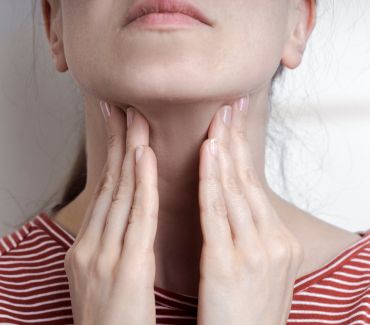Do You Know the Exact Reasons Behind the Discomfort of Neck pain
Neck pain is one of the most common illnesses affecting millions worldwide. Neck pain can destroy and interfere with day-to-day activities, whether as a sharp twinge that limits movement or as a dull ache that persists after a hard day at work. Neck pain can have many different underlying causes, some of which are more complex and varied than simple bad posture or a restless night. Here we explore the root cause of neck pain to provide insight into this prevalent ache.
Poor posture - Poor posture is a major contributing factor to neck pain. The neck is frequently put under unnecessary strain in the modern digital age when hours are spent hunched over computers and smartphones. The forward head position, sometimes referred to as "text neck," puts additional strain on the cervical spine, causing discomfort and tense muscles. If not addressed, this can eventually lead to persistent neck pain.
Muscle strain - Neck strain can occur from engaging in activities that involve sudden exertion or repetitive movements. This involves things like lifting heavy objects, playing sports, and even cleaning the house. The neck's muscles can become painful and irritated from overuse or from sudden force, which can cause discomfort and limited range of motion.
Degenerative Conditions - The cervical structures, such as the joints, discs, and vertebrae, deteriorate with age. The degeneration of the discs between the vertebrae can result in conditions like osteoarthritis or cervical spondylosis, which can narrow the spinal canal and cause bone spurs. These alterations may cause stiffness, pain in the neck, and, in extreme situations, compression of the spinal cord or nerves.
Herniated Discs - A herniated disc happens when a spinal disc's hard outer layer ruptures or bulges, exposing the soft, gel-like center. This can compress neighboring nerves in the cervical spine, resulting in pain, numbness, and weakness that travel down the arm. The risk of disc herniation can be raised by repetitive neck bending, lifting, or twisting exercises.
Traumatic Injuries - Sudden and excruciating neck pain can be brought on by traumatic injuries like whiplash from a fall or auto accident. When the head is violently jerked back and forth, it can cause whiplash, which strains the neck's muscles and ligaments. Whiplash injuries can arise from even small collisions and cause symptoms like headaches, stiff necks, and trouble moving the neck.
Poor sleeping habits - Neck pain can also be influenced by our sleeping habits. Uncomfortable sleeping positions or the use of pillows that don't provide enough support for the neck can cause strain on the muscles and ligaments, which can cause stiffness and pain when you wake up. To reduce the likelihood of neck pain while you sleep, it is imperative to keep your spine in a neutral alignment.
Stress and tension - Tension and tightness in the muscles, which can cause neck pain, are frequently brought on by stress. Our bodies tend to stiffen up when we're under stress, which causes more stiffness and discomfort in the shoulders and neck muscles. Neck pain brought on by stress can be reduced by engaging in relaxation techniques like deep breathing, meditation, or mild stretching.
Neck pain occurs due to all of these various factors. We can prevent and manage this common discomfort by being aware of the underlying causes of neck pain. The key to preventing neck pain is to keep yourself active, practice ergonomic posture, control your stress, and maintain good posture.
You can manage your neck pain with all preventive measures along with natural medicine too. Homeopathy medicine such as Spondin oral spray helps to alleviate acute to chronic neck pain. It eases discomfort by reducing muscle contraction. Spondin oral spray is provided by Doctor Bhargava only, it’s a homeopathic medicine and it’s a completely natural remedy. It gives fast relief to any type of neck pain.
Additional effective tips to manage neck pain:
-
Take frequent breaks
-
Maintain good posture
-
Adopt cold & heat therapy
-
Neck stretches and exercises
-
Practice stress management techniques
-
Use neck pillow support
Read Comments
Please Add and approve your comment by admin
.jpg)
.jpg)
.jpg)

Add Your Comments
Your Rating